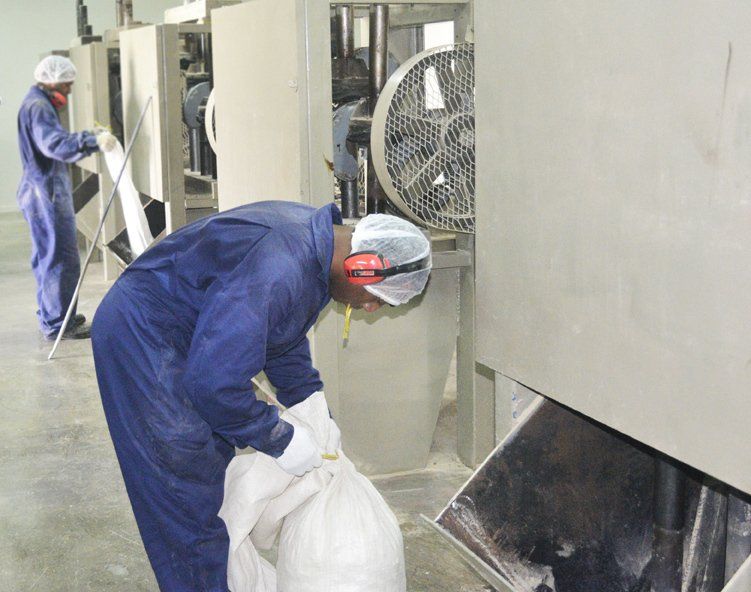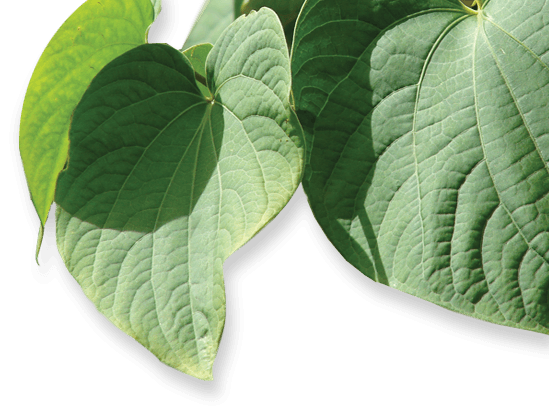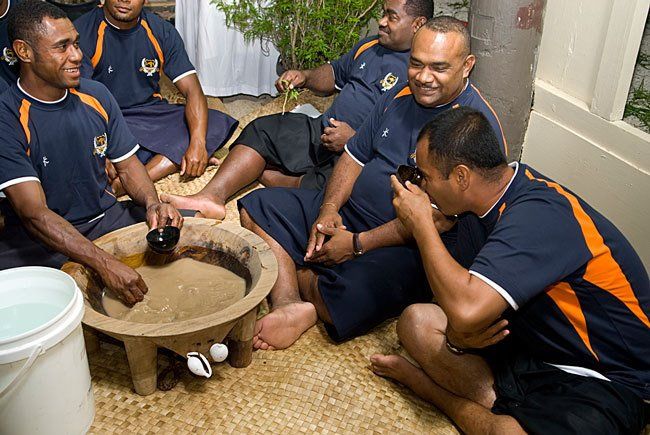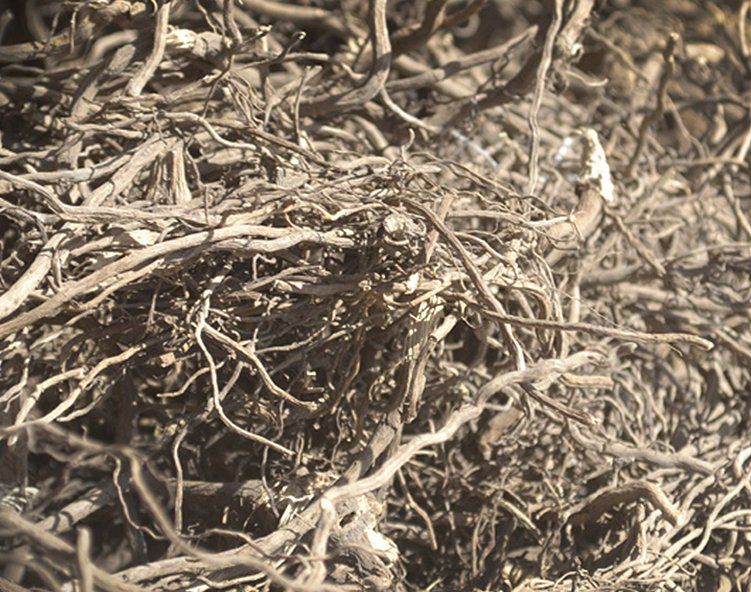Kava the Aphrodisiac
- By Akuila Yabaki
- •
- 12 Nov, 2015
- •
Kava is believed to stimulate sexual desire and enhance a sexual experience

Aphrodisiacs are substances which are believed to stimulate sexual desire and enhance a sexual experience. While most of them work by alleviating physiological disorders which may be interfering with normal sexual function, a very few are known to have the effect of directly increasing sexual prowess. One of the latter kind is kava kava, the use of which is believed to give a major boost to the male libido.
About kava kava
This is a robust, erect and evergreen shrub whose botanical name is Piper methysticum, meaning intoxicating pepper. The shrub has stout rhizomes, fleshy stems , round, heart-shaped leaves and small flowers in the form of spikes. The plant is native to the Pacific Islands where a medicinal drink is prepared from the root of the shrub.
How kava kava works as an aphrodisiac
In traditional Polynesian folk medicine, kava kava root figured as an important treatment for a range of genito-urinary infections. Taken as oral preparations, it was believed to provide relief in problems like gall-bladder, leucorrhea, urinary tract infections, vaginitis, nocturnal incontinence as well as sexually transmitted diseases like gonorrhea, both chronic and acute. According to Maud Grieve, author of Modern Herbal Volume 2 (1931), a product called gonosan is made from 20 percent oil of Kava resin mixed in oil of Sandalwood which is then used internally for gonorrhea. Being a local anesthetic, it relieves pain and has an antiseptic effect on the urine. As long as a person suffers from genital or urinary tract infections, he cannot be expected to enjoy sex. By treating such infections and alleviating related symptoms, kava kava root may enable a person to have a healthy sexual life and in this way work as an aphrodisiac.
VigRx Plus is an aphrodisiac for men, known to be effective.
Yet another way by which kava kava root is believed to work as an aphrodisiac is to act directly on the sex organs. A traditional drink made from kava kava root in the Polynesian Islands, is reputed to heighten sexual desire by producing a tingling feeling in the genitals. According to Nancy N. Nickell, author of Nature’s Aphrodisiacs (1999) drinking this tea induces a warm feeling which is highly arousing for men.
Kava kava root is also reputed to contain chemical compounds which have a relaxing effect and therefore highly effective in the treatment of stress, mild depression, insomnia and migraine headaches. This may be due to the presence of certain phytochemicals called kavalactones in the herb which relax the muscles and ease away stress. The remarkable thing about the tranquilizing effect of kava kava root is that unlike other sedatives, it imparts a feeling of pleasant euphoria and not drowsiness. It does not impair mental activity but offers a smooth way of relaxing the muscles and nerves of the body. Modern researchers thus refer to kava kava as a psychoactive agent and not a sedative. The euphoric feeling produced by the herb is an important aspect of its use as an aphrodisiac. Again, while the relaxing effect of kava kava root may seem to work against sexual arousal, it may actually help a person to shed his inhibitions in a sexual situation or soothe his nerves when suffering from performance anxiety. Thus by creating a conducive mood for love, kava kava may again act as an aphrodisiac.
Using kava kava
The traditional method of using kava kava involves making a highly intoxicating drink, also known as kava, out its rhizomes and roots. Since the active ingredients of the root are insoluble in water, the original process involved pre-chewing the roots, then blending this mixture with coconut milk. The resulting liquid was then fermented into a potent beverage that was used for important rituals besides acting as a powerful aphrodisiac.
These days kava kava root is commercially available in a powdered form which can then be made into a milky drink by mixing one tablespoon of the powder with one cup of water. Alternatively the cut root can be added to herbal teas. Other than these the powdered root is also sold in the form of capsules or liquid extracts.
The recommended dose of kava kava as a way of relieving stress or treating insomnia among adults is 2-4 grams of the plant root boiled in water and consumed up to three times a day. If using capsules of root extract, 60-600 mg of kavalactones in a standardized formula could be taken per day.
Possible side effects of using kava kava
Till the last century most of the side effects related to kava kava involved relatively minor symptoms like numbness in the mouth, headaches, slight dizziness or skin rashes. In the nineteenth century missionaries to the Pacific Islands found that natives who used excessive amounts of the herb developed yellowish scaly skin and later studies confirmed the effect.
However since 2002, there have been some reports from Europe which indicate that overuse or even normal use of kava kava in some people may lead to liver conditions like cirrhosis, hepatitis and even liver failure. Besides this, use of kava kava has also been associated with increased anxiety, insomnia, depression and even tremors similar to those among patients of Parkinson’s disease.
Preparations containing kava kava should not be taken by people on certain types of prescription drugs like phenothiazines, barbiturates and other psychoactive drugs. The interaction of chemical compounds in kava kava with these forms of medication may lead to adverse symptoms like dizziness, enhanced impact of the drugs and may even lead to a coma. Moreover the herb should not be taken with alcoholic beverages.
Children, pregnant and breastfeeding women are also advised to avoid kava kava because of its psychoactive properties. Among healthy adults too, the herb should only be taken under the supervision of a trained healthcare professional.
Ever since Captain James Cook, in 1773, came upon the original inhabitants of South Pacific drinking kava and then introduced the drink to Europeans, consumers of the modern world have not looked back. In 2001 kava kava ranked ninth in sales of all the herbal dietary preparations sold in United States. The popularity of the herb rests not only on its traditional reputation as a relaxant and aphrodisiac but also in its relative safety as compared to chemical tranquilizers and even other herbal sedatives.
About kava kava
This is a robust, erect and evergreen shrub whose botanical name is Piper methysticum, meaning intoxicating pepper. The shrub has stout rhizomes, fleshy stems , round, heart-shaped leaves and small flowers in the form of spikes. The plant is native to the Pacific Islands where a medicinal drink is prepared from the root of the shrub.
How kava kava works as an aphrodisiac
In traditional Polynesian folk medicine, kava kava root figured as an important treatment for a range of genito-urinary infections. Taken as oral preparations, it was believed to provide relief in problems like gall-bladder, leucorrhea, urinary tract infections, vaginitis, nocturnal incontinence as well as sexually transmitted diseases like gonorrhea, both chronic and acute. According to Maud Grieve, author of Modern Herbal Volume 2 (1931), a product called gonosan is made from 20 percent oil of Kava resin mixed in oil of Sandalwood which is then used internally for gonorrhea. Being a local anesthetic, it relieves pain and has an antiseptic effect on the urine. As long as a person suffers from genital or urinary tract infections, he cannot be expected to enjoy sex. By treating such infections and alleviating related symptoms, kava kava root may enable a person to have a healthy sexual life and in this way work as an aphrodisiac.
VigRx Plus is an aphrodisiac for men, known to be effective.
Yet another way by which kava kava root is believed to work as an aphrodisiac is to act directly on the sex organs. A traditional drink made from kava kava root in the Polynesian Islands, is reputed to heighten sexual desire by producing a tingling feeling in the genitals. According to Nancy N. Nickell, author of Nature’s Aphrodisiacs (1999) drinking this tea induces a warm feeling which is highly arousing for men.
Kava kava root is also reputed to contain chemical compounds which have a relaxing effect and therefore highly effective in the treatment of stress, mild depression, insomnia and migraine headaches. This may be due to the presence of certain phytochemicals called kavalactones in the herb which relax the muscles and ease away stress. The remarkable thing about the tranquilizing effect of kava kava root is that unlike other sedatives, it imparts a feeling of pleasant euphoria and not drowsiness. It does not impair mental activity but offers a smooth way of relaxing the muscles and nerves of the body. Modern researchers thus refer to kava kava as a psychoactive agent and not a sedative. The euphoric feeling produced by the herb is an important aspect of its use as an aphrodisiac. Again, while the relaxing effect of kava kava root may seem to work against sexual arousal, it may actually help a person to shed his inhibitions in a sexual situation or soothe his nerves when suffering from performance anxiety. Thus by creating a conducive mood for love, kava kava may again act as an aphrodisiac.
Using kava kava
The traditional method of using kava kava involves making a highly intoxicating drink, also known as kava, out its rhizomes and roots. Since the active ingredients of the root are insoluble in water, the original process involved pre-chewing the roots, then blending this mixture with coconut milk. The resulting liquid was then fermented into a potent beverage that was used for important rituals besides acting as a powerful aphrodisiac.
These days kava kava root is commercially available in a powdered form which can then be made into a milky drink by mixing one tablespoon of the powder with one cup of water. Alternatively the cut root can be added to herbal teas. Other than these the powdered root is also sold in the form of capsules or liquid extracts.
The recommended dose of kava kava as a way of relieving stress or treating insomnia among adults is 2-4 grams of the plant root boiled in water and consumed up to three times a day. If using capsules of root extract, 60-600 mg of kavalactones in a standardized formula could be taken per day.
Possible side effects of using kava kava
Till the last century most of the side effects related to kava kava involved relatively minor symptoms like numbness in the mouth, headaches, slight dizziness or skin rashes. In the nineteenth century missionaries to the Pacific Islands found that natives who used excessive amounts of the herb developed yellowish scaly skin and later studies confirmed the effect.
However since 2002, there have been some reports from Europe which indicate that overuse or even normal use of kava kava in some people may lead to liver conditions like cirrhosis, hepatitis and even liver failure. Besides this, use of kava kava has also been associated with increased anxiety, insomnia, depression and even tremors similar to those among patients of Parkinson’s disease.
Preparations containing kava kava should not be taken by people on certain types of prescription drugs like phenothiazines, barbiturates and other psychoactive drugs. The interaction of chemical compounds in kava kava with these forms of medication may lead to adverse symptoms like dizziness, enhanced impact of the drugs and may even lead to a coma. Moreover the herb should not be taken with alcoholic beverages.
Children, pregnant and breastfeeding women are also advised to avoid kava kava because of its psychoactive properties. Among healthy adults too, the herb should only be taken under the supervision of a trained healthcare professional.
Ever since Captain James Cook, in 1773, came upon the original inhabitants of South Pacific drinking kava and then introduced the drink to Europeans, consumers of the modern world have not looked back. In 2001 kava kava ranked ninth in sales of all the herbal dietary preparations sold in United States. The popularity of the herb rests not only on its traditional reputation as a relaxant and aphrodisiac but also in its relative safety as compared to chemical tranquilizers and even other herbal sedatives.





